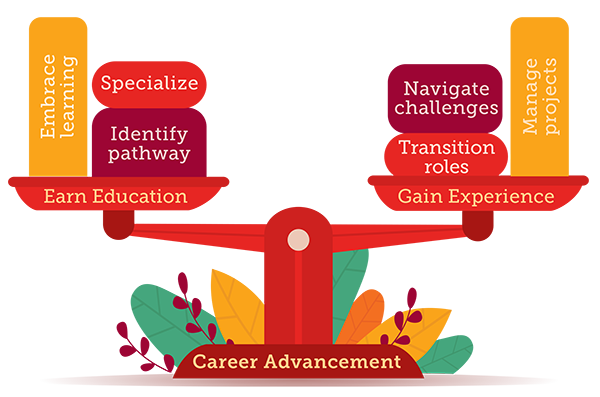Navigating your career as a human resource professional
Five tips on navigating your career in human resources
As the backbone of any organization, human resource (HR) professionals play a pivotal role in shaping workplace culture, managing talent, and driving organizational success. However, for many people looking to pursue HR as a career, it can be difficult to know where to start. Even seasoned HR professionals often struggle to find a clear path to advance their careers and move into senior leadership roles.

Here are five tips on navigating your career in HR:
Start with one or two HR function specializations
HR specializations allow you to focus on areas that align with your interests and career goals. Identify one or two areas to specialize in, preferably aiming for those with common or overlapping competency requirements, such as compensation and recruitment or labour relations and HR generalist. This focused approach helps you build deep expertise that can be leveraged in more advanced roles.
Gain relevant experience and competencies
Seek opportunities to work on diverse projects and take on responsibilities that broaden your HR knowledge. This hands-on experience is invaluable as you progress in your career. As you gain experience, focus on mastering HR fundamentals, including employment law, employee relations, and performance management. This knowledge forms the backbone of your HR expertise.
Understand the challenges within the HR landscape
While a career in HR offers many opportunities, it also presents numerous challenges, such as evolving legal and regulatory landscapes or advancements in HR technology. Staying up to date with these challenges and building a toolkit to address them can help you transition into more senior roles. Developing solutions for these issues not only benefits your organization but also enhances your career prospects.
Transition from entry-level to mid-level positions
Demonstrating your capability in entry-level roles is crucial, but to move into senior-level HR positions, you must challenge yourself with mid-level roles. Senior-level HR positions, such as HR managers, directors, and VPs, involve strategic decision-making and leadership responsibilities. These roles require extensive experience and a deep understanding of organizational dynamics, which can only be gained through accomplishments at mid-level positions.
Embrace continuous learning
Navigating the HR career path requires strategic planning, continuous learning, and a commitment to professional development. By staying informed, continuously learning, and building a strong professional network, HR professionals can navigate their careers successfully and make significant contributions to their organizations. Engage in lifelong learning through formal education, online courses, and professional networking.
The Human Resource Professional Development Hub
To support HR professionals in their career development, the Human Resource Professional Development Hub at University of Calgary Continuing Education offers a range of programs designed to accelerate careers in this field. These programs align with local and global HR competencies and have been vetted by HR subject matter experts. The hub provides a combination of skills, knowledge, and experiences needed to perform tasks successfully and thrive in specific environments.
The hub offers HR capability-based programs, including diplomas, certificates, and micro-credentials for specialized education and professional development. These programs provide the technical, functional, business, and operational tools necessary for HR professionals to succeed and differentiate themselves in the competitive landscape.
Advance your career with the Human Resource Professional Development Hub.

